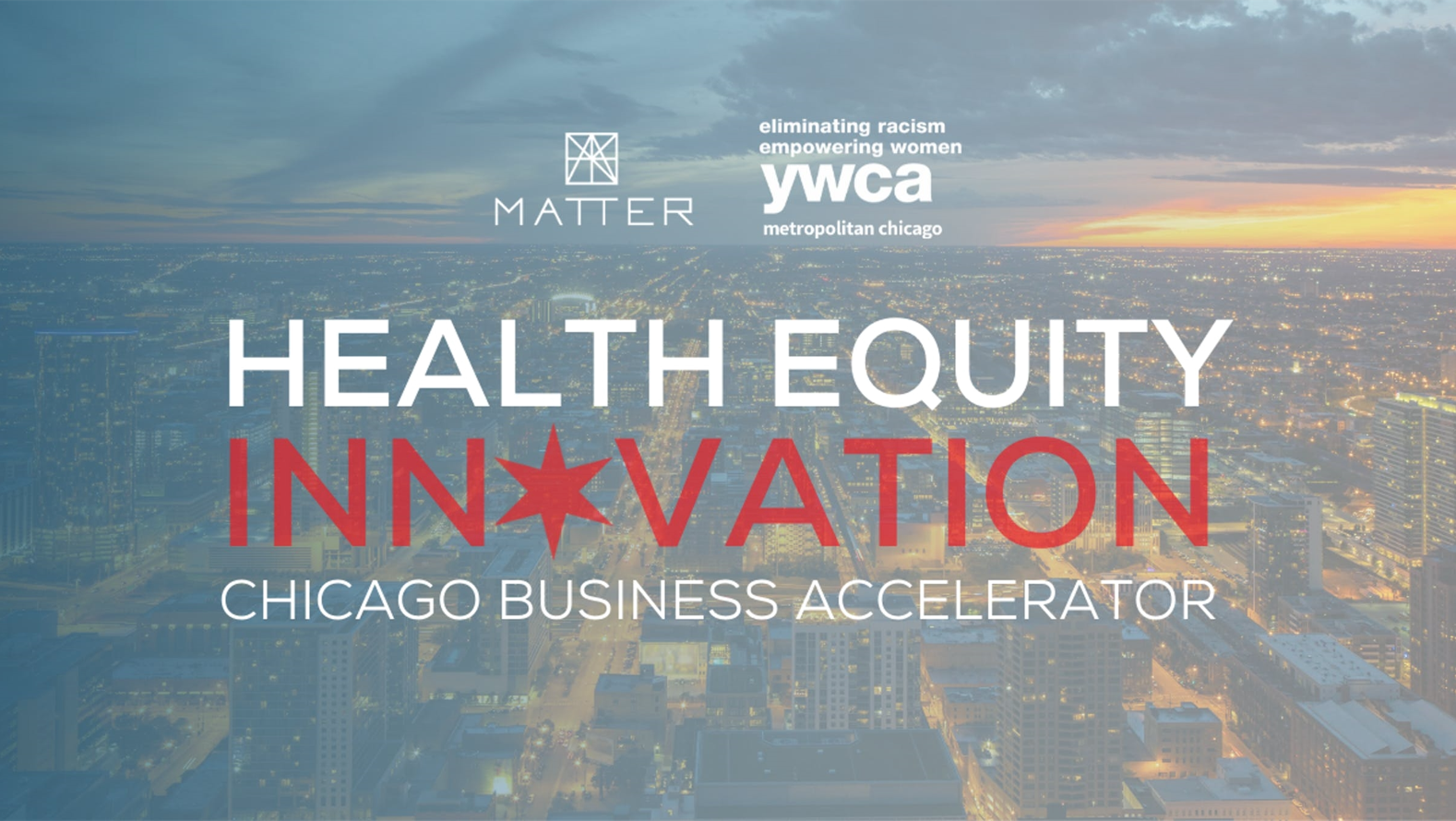MATTER and YWCA Metropolitan Chicago recently partnered to provide mentorship and support to a handful of innovative startups that focus on eliminating the social, economic, and cultural barriers that prevent many Chicagoans from receiving adequate health care. Back in August, CommunityHealth CEO Steph Willding joined with five other leaders in the health care field to review the hundreds of applications submitted to MATTER. Priority was given to the applications that best addressed the following health care domains:
- Addressing the impact of social determinants of health (SDoH) on health outcomes
- Promoting health education
- Increasing access to healthcare and social services
- Providing mental and behavioral health services
- Promoting healthy youth development
- Preventing chronic diseases
- Utilizing data and research to promote equity in healthcare
As technology advances, we have greater opportunities to address these long-standing issues in health care. Recognizing the importance of expanding these opportunities, MATTER and YWCA Metropolitan Chicago created this eight-week program, which provided the selected entrepreneurs with “mentorship, exclusive resources and interactive curriculum from subject matter experts.” The goal for the end of the program was for each start-up to have “a clear roadmap to bring their solution to market,” thus stimulating the process of innovation itself and rapidly delivering that innovation to the populations who need it most.
After serious deliberation, the following 10 startups were selected to join the Health Equity Innovation Accelerator Cohort.
Amah Health
Amrayco
ConnectCareHero
Grapefruit Health
PainNavigator
Silverberry Genomix Co.
SMART Charts
SpotSum
SWITCH (Sustainable wellness through innovation, technology and community health)
The Women’s Health Initiative
“What was really exciting was the way that each of the 10 companies was in a different stage of development,” Steph remarked. “Some just had an idea to workshop, whereas others were more established already.”
As a collaborator of the Cohort, Steph gave a presentation to the participating entrepreneurs about CommunityHealth, explaining the services we provide and how we are able to provide them. As someone with years of experience in the field of public health, as well as someone with direct and regular contact to underserved patient populations, she served as an excellent resource for the entrepreneurs. Her expertise on how each startup’s solution could potentially benefit a community-based clinic was invaluable. Indeed, three of the startups in the Cohort sought her guidance beyond the eight-week course.
“I am proud of how CommunityHealth has worked hard to be open about how we approach equity,” Steph says.
Along with diversity of developmental stages, the 10 startups came in a variety of innovations. From a wearable medication adherence device, to a geriatric social engagement app, to a clinic that focuses specifically on the impact of generational trauma, the startups addressed a wide array of problems with a wide range of creative solutions.
Over the course of eight weeks, each start-up refined their innovations and developed pitches to present at the final ceremony, which took place on November 4th. MATTER gathered investors and health care professionals to hear the presentations, provide feedback, and hopefully invest. Whether or not they secured investments, each participant of the Cohort ended the program with a better developed solution than when they had begun, thanks to the mentorship and collaboration that MATTER offered.
Recently, innovative solutions that address the social determinants of health have become especially prevalent as telemedicine continues to become a normalized part of health care. The Health Equity Innovation Accelerator Cohort is a shining example of the growing support for up-and-coming creative solutions to the problems that affect underrepresented populations.

